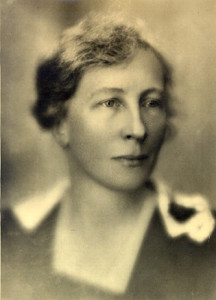 Tomorrow is International Women’s Day and the month of March is Women’s History Month. This year’s theme for Women’s History Month is “Celebrating Women of Character, Courage, and Commitment.”
Tomorrow is International Women’s Day and the month of March is Women’s History Month. This year’s theme for Women’s History Month is “Celebrating Women of Character, Courage, and Commitment.”
Lillian Moller Gilbreth is one person we should think of if our work involves factories or assembly lines. Without her contributions to time and motion study, we might not be here at all. One of the first females who held a Ph.D working in engineering, Gilbreth was married to Frank Bunker Gilbreth, Sr. and they had 12 children together. Their family life was made famous by the book Cheaper by the Dozen and the movie versions that followed it.
Born to German parents in California, Gilbreth was educated at home until she attended a public school at the age of nine. She quickly advanced through the grades and was elected vice president of her senior class at Oakland High School. After high school, Gilbreth went on to study English literature at UC Berkley. She was the first female commencement speaker in UC Berkley’s history.
She went on to study psychology at Columbia under Edward Thorndike, but during her master’s studies she became ill and had to return home to California. She continued her education at the University of California and pursued a Ph.D. but couldn’t meet residency requirements despite writing a published dissertation. After her immediate family moved to New England, Gilbreth wrote a second dissertation at Brown University and earned her Ph.D. in industrial psychology, the first of its kind.
Gilbreth worked with her husband under his name and never took credit for her contributions but when he died young, she had to change her approach and market herself to work in a man’s world. She realized the best way to do that was to go in through the kitchen. Gilbreth, who couldn’t cook much of anything since she put her time into her career, redesigned the kitchen to a system called “The Kitchen Practical.” Almost every kitchen uses this same design today so home cooks can do all the tasks required without wasting time and energy moving around a poorly designed kitchen. The familiar L and C shapes of today’s kitchens come from Gilbreth.
After working on kitchens and showing her aptitude for psychology and efficiency, Gilbreth worked with companies like Johnson & Johnson, Macy’s, and other big brands of the time. Better Homes Manual wrote articles about her innovations, and especially about her changes in the kitchen:
Efficiencies should make time for other pursuits, and technology could allow you to think about other things, even while washing dishes
Without the work of Lillian Moller Gilbreth, we wouldn’t think of work and how humans and machines fit in to it in the same way we do today.
